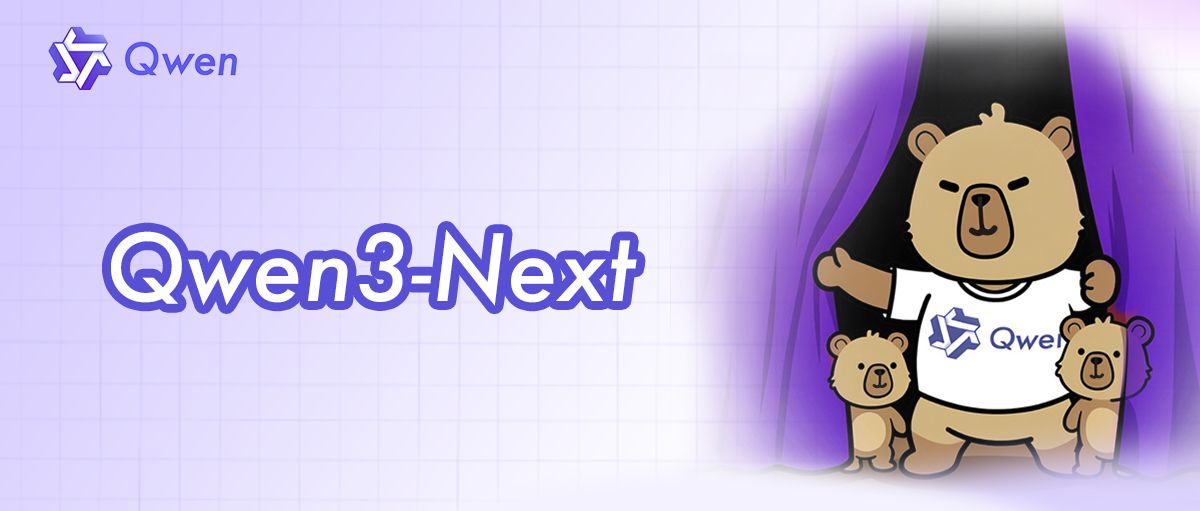
As artificial intelligence technologies continue their rapid advancement, Chinese tech giant Qwen has announced two groundbreaking models that mark a new era in the field: Qwen3-Next-80B-A3B-Instruct and Qwen3-Next-80B-A3B-Thinking. The company unveiled these new models via its Twitter account, sharing impressive performance data that has resonated throughout the AI community. The innovative "hybrid architecture" and "ultra-sparse Mixture-of-Experts (MoE)" structure at the core of these models aim to reduce costs in AI training and inference processes while enhancing performance and speed.
The most striking feature of the Qwen3-Next-80B-A3B models is that despite having a total of 80 billion parameters, only 3 billion parameters are actively used for each token. This results in a 10x lower cost during training compared to traditional models and more importantly, 10x faster inference, especially for contexts exceeding 32,000 tokens. This extraordinary increase in efficiency is crucial for the widespread adoption and accessibility of large-scale AI models. Notably, the Qwen3-Next-80B-A3B-Instruct model demonstrates performance approaching Qwen's flagship 235-billion-parameter model, showcasing the potential of smaller yet more efficient models.
The other new model, Qwen3-Next-80B-A3B-Thinking, particularly excels in complex reasoning tasks. This model is reported to have outperformed rival closed-source and high-cost models like Gemini-2.5-Flash-Thinking, achieving remarkable success. This demonstrates that Qwen's new architecture not only offers speed and cost advantages but also delivers top-tier performance in intricate tasks. The "Gated DeltaNet" and "Gated Attention" mechanisms within the hybrid architecture enhance the ability to understand and process long contexts while ensuring a stable training process.
Qwen's new models are available to developers as open-source on Hugging Face and ModelScope platforms. They can also be accessed via Alibaba Cloud Model Studio and the NVIDIA API Catalog. The release of these models opens new doors for AI applications requiring extensive context processing and complex reasoning. Qwen states that with these models, it aims to lead future AI development, paving the way for smarter and more efficient systems. The Qwen3-Next series offers a powerful vision for the future of AI model design, enabling energy and cost savings without compromising on power.